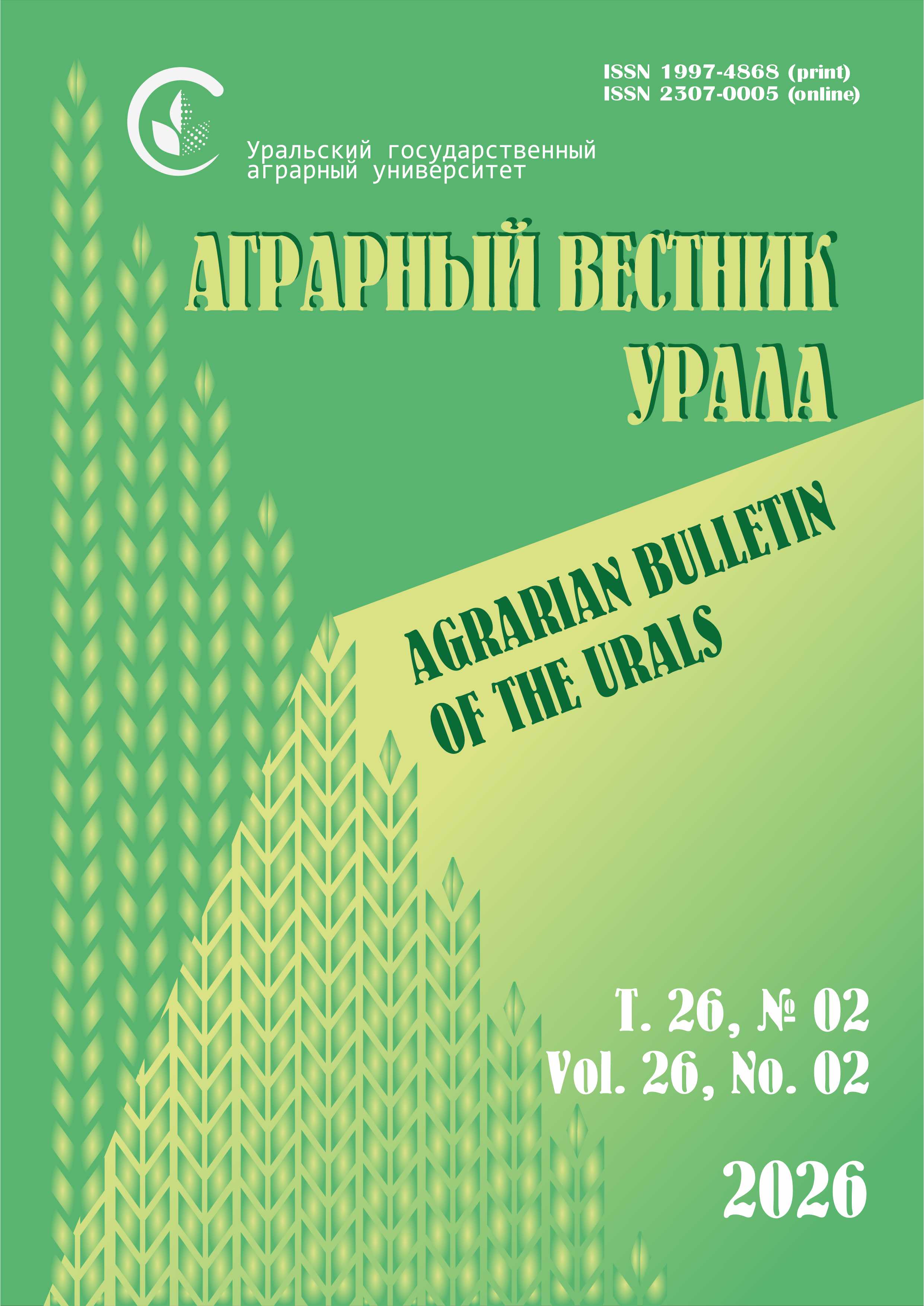Authors:
L. N. Skipin,
E. V. Zakharova,
N. N. Dyukova
Tyumen Industrial University, Tyumen, Russia
State Agrarian University of the Northern Trans-Urals, Tyumen, Russia
E-mail: This email address is being protected from spambots. You need JavaScript enabled to view it.
Abstract. The purpose and objectives of the study is to establish the levels of influence of chemistry and the degree of salinity on the onset of half (LD50) and full (LD99) death of seeds of alfalfa blue hybrid and yellow clover. To identify the degree of participation of each factor in the death of legume seeds using the correlation coefficient and determination. To conduct a comparative assessment of the salt resistance of the seeds of sweet clover and alfalfa. Methods. The main natural types of salinization characteristic of the forest-steppe zone of Western Siberia are selected as objects of study. The germination energy and germination of seeds were determined according to GOST 12038-84. Model variants of salt solutions for germination of seeds of sweet clover and alfalfa were created taking into account the proportions of the formation of the main types of salinization. The types of salinization are represented by sulfate-soda, sulfate-chloride (neutral), and gypsum chloride-sulfate salt. Scientific novelty. Drilling slurries stored in barns during the extraction of hydrocarbon raw materials correspond to similar salinization conditions. Artificial salinization of water-salt solutions with a given concentration made it possible to identify half (LD50) and complete death (LD99) of clover and alfalfa seeds at the appropriate level and chemistry of salinization. Comparison of neutral and sulfate-soda salinization showed that the presence of soda in the solution determines its toxicity by 86–87 %. The negative effect of neutral salinization appears to a greater extent due to an increase in osmotic pressure. The presence of gypsum in the nutrient saline solution reduced the toxicity to seeds of phytomeliorant crops by 1.9–2.5 times. Results. It has been established that under conditions of neutral and sulfate-soda salinization, plants experience an acute deficiency in calcium. The introduction of gypsum during chemical reclamation of salt pans and drilling slurries eliminates this deficiency. The establishment of indicators (LD50) allows you to adjust the seeding rate of phytomeliorants. The indicator (LD99) indicates the expediency of applying gypsum on salt pans and drilling slurries.
Keywords: chemistry, degree of salinity, phytomeliorants, correlation, determination, toxicity, gypsum, soda, chlorides, sulfates.
For citation: Skipin L. N., Zakharova E. V., Dyukova N. N. Vliyanie osnovnykh tipov khimizma stepeni zasoleniya pochv i tekhnogennykh gruntov na vskhozhest’ semyan fitomeliorantov [The influence of the main types of chemistry and the degree of salinity of soils and technogenic soils on the germination of phytomeliorant seeds] // Agrarian Bulletin of the Urals. 2023. No. 07 (236). Pp. 46‒56. DOI: 10.32417/1997-4868-2023-236-07- 46-56. (In Russian.)
Download the full text of the article












